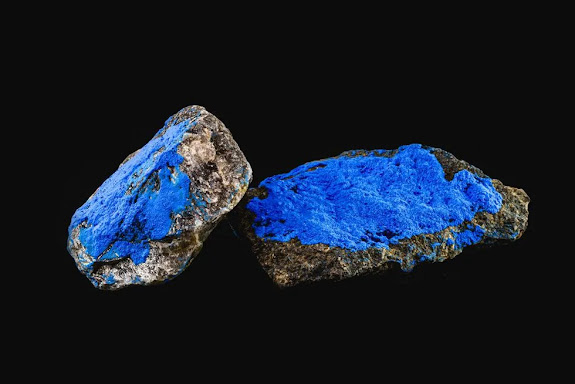Featured
- Get link
- X
- Other Apps
COBALT - The most important element in the world, and the dark side of mining it.
Cobalt is a rare metal, with an estimated 6.9 million metric tons of reserves worldwide. About 60% of the world's cobalt comes from the Democratic Republic of Congo (DRC), where it is mined in abundance. Cobalt is a critical component in rechargeable batteries, including those used in laptops, smartphones, and electric vehicles. According to the Cobalt Institute, over 50% of cobalt is used in the production of rechargeable batteries, with the rest used in various other applications such as superalloys, ceramics, and pigments.
However, cobalt mining in the DRC is fraught with ethical concerns, particularly around child labor. The country accounts for approximately 20% of the world's cobalt production, with a large portion of the mining carried out by artisanal miners. These miners are typically small-scale, informal operations that involve the use of hand tools and unregulated working conditions. According to the International Labour Organization (ILO), around 40,000 children work in cobalt mines in the DRC, many of whom work in dangerous conditions for long hours and are exposed to toxic dust.
The exploitative nature of cobalt mining in the DRC has been widely documented, and many tech companies have been accused of turning a blind eye to these practices. Despite this, companies are under increasing pressure to clean up their supply chains and ensure that they are not benefiting from human rights abuses. Apple, for example, has committed to using only ethically-sourced cobalt in its batteries, while Tesla has pledged to eliminate cobalt from its batteries altogether.
If there were a shortage of cobalt, the implications for the tech industry would be severe. Without cobalt, the production of lithium-ion batteries would be severely curtailed, leading to a significant impact on the entire technology industry. Electric vehicles, in particular, would be hit hard, as they rely heavily on lithium-ion batteries. According to Benchmark Mineral Intelligence, a leading provider of market intelligence for the battery supply chain, the electric vehicle market would require four times the current global cobalt production by 2030. A shortage of cobalt would significantly slow down the transition to renewable energy and put a damper on the green energy revolution.
Moreover, a cobalt shortage would lead to higher prices for the element, which could lead to increased exploitation of artisanal miners in the DRC. This would exacerbate the already dire humanitarian situation in the country, with children bearing the brunt of the impact.
To address the issue of cobalt mining, there needs to be a concerted effort by tech companies and governments to ensure that the supply chain for cobalt is ethical and sustainable. This would involve improving working conditions, eliminating child labor, and providing fair wages to miners. Additionally, there needs to be a focus on increasing the transparency of the supply chain, so that companies can trace the origin of the cobalt they use in their products.
In conclusion, the tech industry's dependence on cobalt is undeniable, and the ethical concerns around cobalt mining cannot be ignored.
Popular Posts
Why Silicon Valley is Called Silicon Valley
- Get link
- X
- Other Apps



Comments
Post a Comment